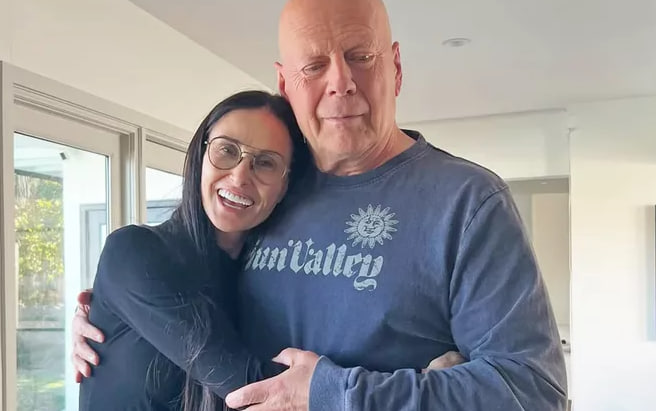Demi Moore, acclaimed actress and author, has recently provided insight into the ongoing health journey of her former husband, Bruce Willis, who has been diagnosed with frontotemporal dementia (FTD). In a heartfelt public message, Moore emphasized Willis’ resilience and the importance of family unity during this time. The couple, though divorced since 2000, have remained close friends and co-parents to their three daughters: Rumer, Scout, and Tallulah Willis.
The update comes as fans and the broader entertainment community continue to express their support for the legendary actor, known for his iconic roles in Die Hard, Pulp Fiction, The Sixth Sense, and Moonlighting. As his family navigates the challenges of a cognitive condition, they have chosen to share aspects of his journey to raise awareness and promote understanding of FTD and related neurodegenerative disorders.
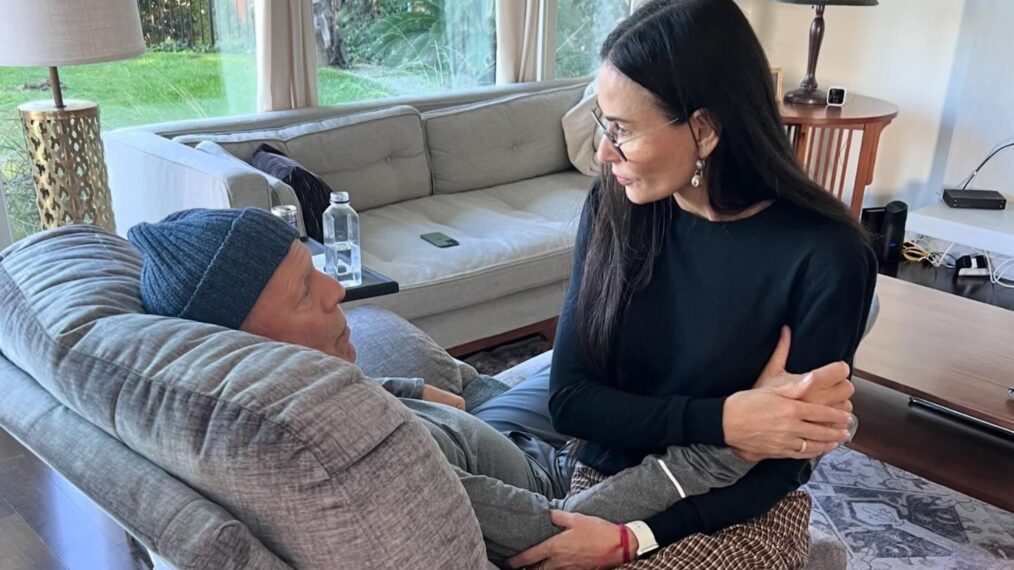
Bruce Willis’ Frontotemporal Dementia Diagnosis
In February 2023, Bruce Willis’ family publicly announced that he had been diagnosed with frontotemporal dementia. This came after a previous statement in March 2022 confirming that he would retire from acting due to aphasia, a language disorder that affects communication. According to a joint family statement, his condition progressed, leading to a more specific diagnosis of FTD.
FTD is a group of brain disorders primarily affecting the frontal and temporal lobes, which are associated with personality, behavior, and language. The Association for Frontotemporal Degeneration (AFTD) notes that FTD typically appears between the ages of 45 and 65 and is often misdiagnosed as Alzheimer’s or psychiatric conditions.
While there is currently no cure, early diagnosis and support from healthcare providers and loved ones can help individuals and families manage symptoms more effectively.
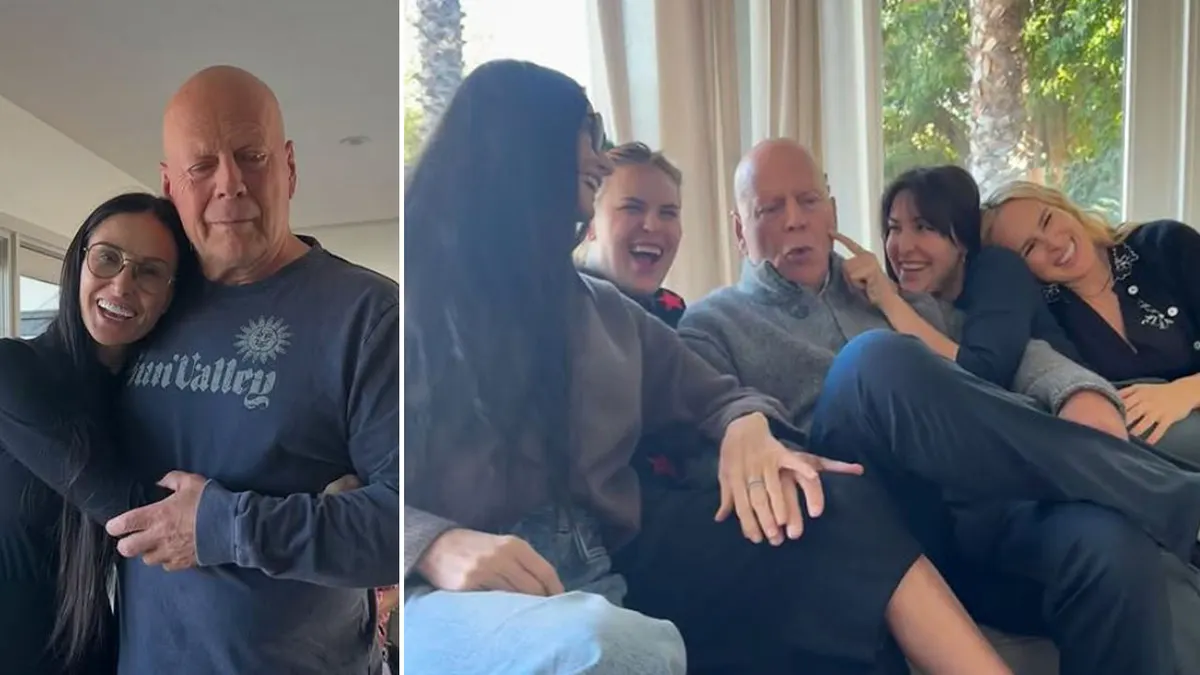
Demi Moore’s Role in Willis’ Support System
Demi Moore and Bruce Willis married in 1987 and were one of Hollywood’s most high-profile couples throughout the 1990s. Though they officially divorced in 2000, they have remained friends and continue to co-parent their children together with mutual respect.
Moore has been a visible part of Willis’ extended support system. She joined Willis’ current wife, Emma Heming Willis, and other family members in sharing public statements about his condition. The collaborative approach between Moore, Heming Willis, and the adult daughters has been widely recognized for its grace and unity, demonstrating how blended families can come together during difficult times.
In various interviews and appearances, Moore has highlighted the importance of compassion, patience, and presence in caregiving and family life. Her willingness to share updates about Bruce’s condition has helped shine a light on a rare and often misunderstood illness.
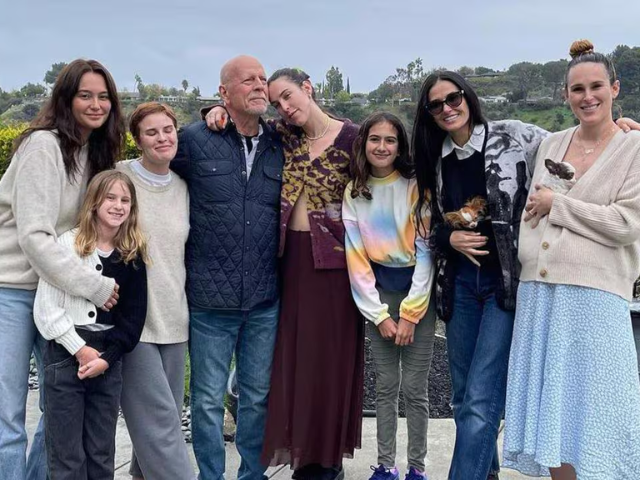
Family Strength and Public Support
The Willis family has received an outpouring of love from fans, colleagues, and public figures since the announcement of Bruce’s health challenges. Their openness has not only helped inform the public about FTD but also sparked important conversations around neurological health and support for caregivers.
Rumer Willis, Bruce and Demi’s eldest daughter, welcomed her first child in 2023, making Bruce a grandfather. Moments like these have been shared with warmth and positivity on social media, reflecting the family’s focus on togetherness, joy, and legacy despite the circumstances.
Emma Heming Willis, who married Bruce in 2009, has also become a key voice in raising awareness about FTD and caregiving. She regularly posts educational content and updates through her personal platforms, often thanking the public for their kindness and encouraging others to learn more about brain health.

Bruce Willis’ Legacy in Film and Culture
Bruce Willis is considered one of the most influential action stars in Hollywood history. He rose to fame with his breakout role as John McClane in the Die Hard franchise and went on to star in a wide range of films that showcased his versatility, including The Fifth Element, Armageddon, Twelve Monkeys, and The Sixth Sense. He has also appeared in acclaimed television shows such as Moonlighting, for which he won a Golden Globe Award and an Emmy.
Over his decades-long career, Willis appeared in more than 100 films and received numerous accolades for his contributions to the entertainment industry. In 2006, he was honored with a star on the Hollywood Walk of Fame.
His work ethic, charisma, and ability to connect with audiences across generations have cemented his status as a cultural icon. Even in retirement, his presence continues to resonate through the films and performances that remain widely available across streaming platforms and television.
Advocacy for Frontotemporal Dementia Awareness
By choosing to speak publicly about Bruce Willis’ diagnosis, the family has become an important voice in the advocacy for frontotemporal dementia awareness. The decision to share his condition—despite its deeply personal nature—has helped reduce the stigma associated with cognitive decline and encouraged open dialogue about early detection and support strategies.
According to the Mayo Clinic, symptoms of FTD can include changes in behavior, personality, and communication abilities. Because of its early onset and unique presentation, it can be particularly challenging for families to recognize and manage without specialized support.
The AFTD has acknowledged the Willis family’s openness as a powerful contribution to the global conversation around brain health. Many families facing similar challenges have expressed gratitude, saying that Bruce’s story has helped them feel less alone.
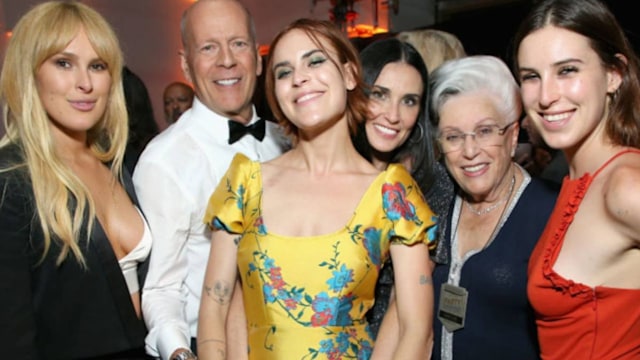
Moving Forward with Positivity and Purpose
While Bruce Willis has stepped away from the public eye, his family remains committed to honoring his legacy and supporting his well-being. They continue to focus on creating meaningful memories, embracing quiet moments together, and living with purpose.
Demi Moore’s update reinforces the core message that the Willis family has consistently shared: resilience, unity, and love are vital when navigating health challenges. Their example serves as an inspiration for families dealing with similar situations, showing that it is possible to move forward with dignity and strength.
Final Thoughts
Bruce Willis’ journey with frontotemporal dementia has brought global attention to a condition that is often overlooked. With the support of loved ones like Demi Moore, Emma Heming Willis, and his children, he continues to receive care rooted in compassion and respect.
Demi Moore’s recent comments remind the public of the importance of staying connected and supportive, especially during difficult times. As fans revisit Bruce Willis’ classic roles and celebrate his legacy, his story now serves a new purpose: raising awareness, encouraging empathy, and highlighting the enduring power of family.
Sources:
-
The Association for Frontotemporal Degeneration (AFTD)
-
Mayo Clinic – Frontotemporal Dementia
-
Bruce Willis IMDb
-
Hollywood Walk of Fame Official Site
-
People Magazine – Bruce Willis Family Updates
